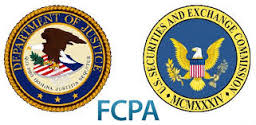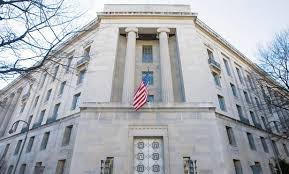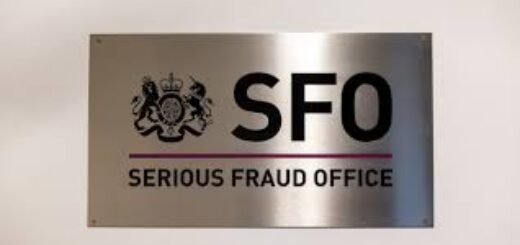DOJ’s New FCPA Enforcement Plan and Guidance (Part I of II)
 The Justice Department finally released its long-awaited new FCPA enforcement plan. It took DOJ a little while to come up with this and in the end, like most initiatives, there is a mixed bag for global companies, FCPA practitioners, DOJ prosecutors and law enforcement.
The Justice Department finally released its long-awaited new FCPA enforcement plan. It took DOJ a little while to come up with this and in the end, like most initiatives, there is a mixed bag for global companies, FCPA practitioners, DOJ prosecutors and law enforcement.
Today’s posting analyzes the initiative on prosecution issues, and tomorrow’s post will review the compliance component of the new guidance.
DOJ’s new plan consists of three important elements:
- Expansion of the FCPA Unit by assignment of ten new prosecutors;
- Increased coordination with foreign law enforcement agencies; and
- Implementation of a pilot program to increase voluntary disclosures by incentivizing companies to disclose and cooperate to prosecute individual violators.
The first two elements of DOJ’s announcement is nothing new. DOJ has announced these efforts in earlier speeches and announcements.
The crux of DOJ’s announcement is its new pilot program. DOJ’s goal is to recalibrate company calculations on whether to voluntarily disclose FCPA violations and cooperate with the Justice Department in the investigation and prosecution of individual offenders.
As my readers know, I have regularly criticized DOJ for failing to define in advance specific standards on the benefit to companies from voluntarily disclosing FCPA violations and cooperating. DOJ has responded to my criticism (which was also made by others) and has defined the benefits. Some may say that DOJ’s definition is fairly vague and that DOJ retains wiggle room not to award a company promised benefits. I do not share that concern. There has to be some wiggle room and trust in the process. DOJ prosecutors should retain discretion for those cases where a company’s cooperation is inconsistent.
Under DOJ’s new FCPA enforcement program, the pilot project sets out three specific requirements.
First, a company must voluntarily disclose FCPA violations. Such disclosure must be prior to an “imminent” government investigation, within a “reasonably prompt time after becoming aware of the offense,” and include all relevant facts known about the individuals involved in the offense.
Second, a company must fully cooperate with the DOJ in the conduct of the investigation and the prosecution of others. The requirements of this element include disclosure about individuals as required under the Yates memorandum, proactive cooperation rather than reactive cooperation; timely updates of the company’s internal investigation; and disclosure of all the facts learned during the investigation and the specific sources, witnesses and documents.
 The Justice Department outlined important considerations with respect to cooperation credit. To avoid sprawling and unjustified internal investigations, DOJ explained that it expected companies to conduct an “appropriately tailored investigation,” and does not expect companies to investigate issues unrelated in time or subject in order to satisfy this element. In a footnote, DOJ explained:
The Justice Department outlined important considerations with respect to cooperation credit. To avoid sprawling and unjustified internal investigations, DOJ explained that it expected companies to conduct an “appropriately tailored investigation,” and does not expect companies to investigate issues unrelated in time or subject in order to satisfy this element. In a footnote, DOJ explained:
For instance, absent facts to suggest a more widespread problem, evidence of criminality in one country, without more, would not lead to an expectation that an investigation would need to extend to other countries. By contrast, evidence that the corporate team engaged in criminal misconduct in overseeing one country also oversaw other countries would normally trigger the need for a broader investigation. In order to provide clarity as to the scope of an appropriately tailored investigation, the business organization (whether through internal or outside counsel, or both) is encouraged to consult with Fraud Section attorneys.
In addition to this guidance on scope of an investigation, DOJ also acknowledges that smaller companies may not be required to conduct as expansive an investigation for the same time period as a Fortune 100 company.
DOJ’s guidance is helpful to investigators who have to make important judgment calls on the scope and intensity of an FCPA investigation.
The third element that has to be satisfied is the company has to complete timely and appropriate remediation of its compliance program. I intend to address this element in a separate posting tomorrow.
Assuming that a company satisfies the three elements set forth above, DOJ:
- May accord up to a 50% reduction off the bottom end of the Sentencing Guidelines fine range, if a fine is sought; and
- Generally will not require appointment of a monitor if a company has, at the time of resolution, implemented an effective compliance program; and
- Consider a declination of prosecution.
The identified benefits are significant since a 50 percent reduction is more than the informal, general rule of a 25 percent reduction off the bottom end of the Sentencing Guidelines fine range.
Additionally, DOJ identified factors to be examined for determining whether to decline prosecution, including the seriousness of the case, where senior management is involved; a significant profit to the company from the FCPA violations; a prior resolution of FCPA violations in the last five years; and a company’s history of compliance.
Some commentators have suggested that these benefits are insufficient to create a real incentive for companies to voluntarily disclose FCPA violations. Companies may still decide not to disclose FCPA violations to DOJ, remediate a violation, and enhance its compliance program.
Under these circumstances, the company that chooses not to disclose runs the risk that the government may learn of the prior violation (e.g. whistleblower disclosure). In those circumstances, the company, if it then chooses to cooperate, may only earn a maximum of a 25 percent reduction off the bottom end of the Sentencing Guidelines.
DOJ’s pilot program is a welcome development. Like many other commentators, however, I share their concern that the benefits may not be sufficient to increase voluntary disclosures by companies. Whether the percentage reduction should be higher than 50 percent, or even a 100 percent reduction (excluding disgorgement), is unclear at this time, but I am sure DOJ will reexamine the data at the end of the one-year pilot program.
















1 Response
[…] Billy Jacobsen, writing in the FCPA Blog, called the Pilot Program a “swing and a miss” and Mike Volkov said the Pilot Program is a “mixed bag”. My conclusion is different from all of these […]